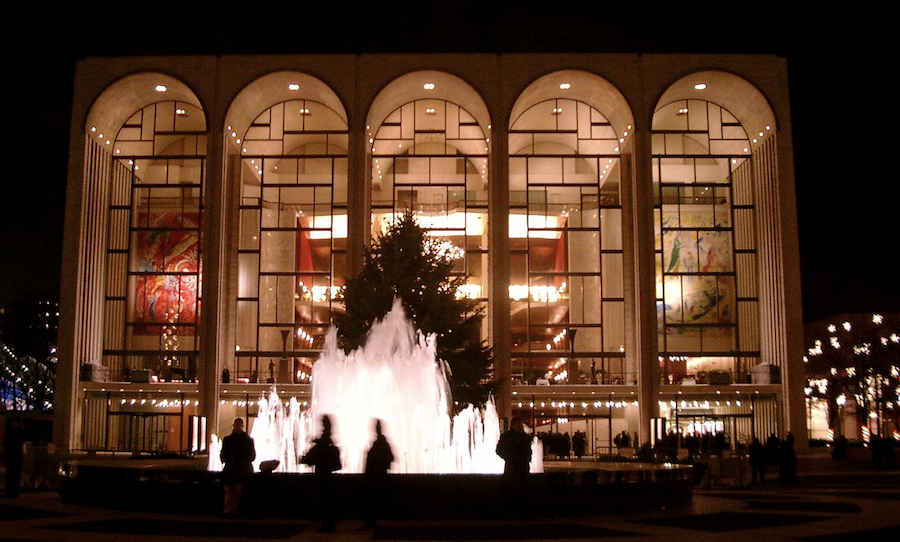
Image by Lechhansl, via Wikimedia Commons
On its website, the Met Opera announced that "effective immediately, all performances have been canceled through March 31 because of coronavirus concerns." But that doesn't mean audiences can't get their fill of opera performances. According to Opera Wire, in an "effort to continue providing opera to its audience members, the Met Opera will host 'Nightly Met Opera Streams' on its official website to audiences worldwide." They add:
These free streams will present encores of past performances from its famed Live in HD series. The encore presentations will begin at 7:30 p.m. each night on the company’s official website and will then be available for an additional 20 hours thereafter. Each showcase will also be viewable on the Met Opera on demand apps.
Head over Met Opera's site where they're streaming Carmen now...
Would you like to support the mission of Open Culture? Please consider making a donation to our site. It's hard to rely 100% on ads, and your contributions will help us continue providing the best free cultural and educational materials to learners everywhere.
Also consider following Open Culture on Facebook and Twitter and sharing intelligent media with your friends. Or sign up for our daily email and get a daily dose of Open Culture in your inbox.
Related Content:
Hear Singers from the Metropolitan Opera Record Their Voices on Traditional Wax Cylinders
The Opera Database: Find Scores, Libretti & Synopses for Thousands of Operas Free Online
How a Philip Glass Opera Gets Made: An Inside Look
The Met Opera Streaming Free Operas Online to Get You Through COVID-19 is a post from: Open Culture. Follow us on Facebook, Twitter, and Google Plus, or get our Daily Email. And don't miss our big collections of Free Online Courses, Free Online Movies, Free eBooks, Free Audio Books, Free Foreign Language Lessons, and MOOCs.
from Open Culture https://ift.tt/2TY0dXR
via Ilumina
Comments
Post a Comment